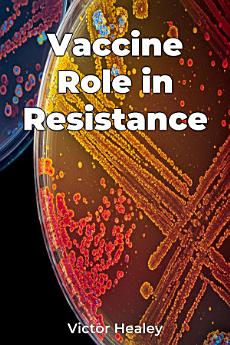Vaccine Role in Resistance
About this ebook
The book presents a structured examination, starting with the basics of antibiotic resistance and vaccine mechanisms. It then highlights specific examples where vaccines have reduced bacterial infections and antibiotic use. Expanding on this, it investigates the ecological impact of widespread vaccination on bacterial populations, considering how reduced transmission affects the spread of resistant strains.
The book acknowledges challenges like vaccine hesitancy and the need for novel vaccine development, ultimately advocating for integrating vaccination as a critical part of a comprehensive strategy against antibiotic resistance. Drawing on epidemiological studies, clinical trials, and genomic analyses, the book emphasizes the proactive role of vaccines in reducing antibiotic dependence. It bridges infectious diseases, public health, and microbial genetics, providing insights for policymakers and healthcare professionals to optimize vaccination programs and combat the rise of antibiotic-resistant bacteria.








